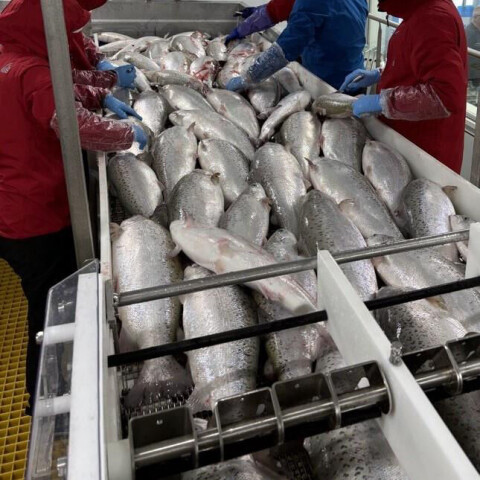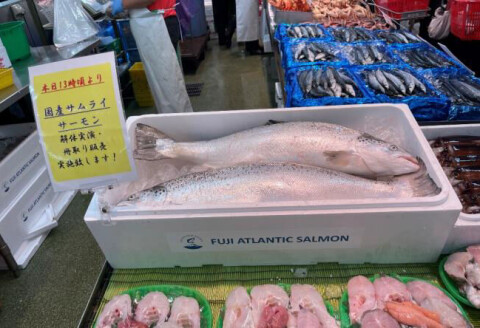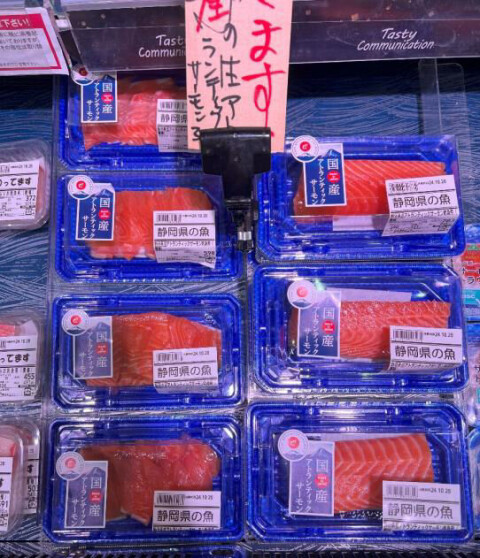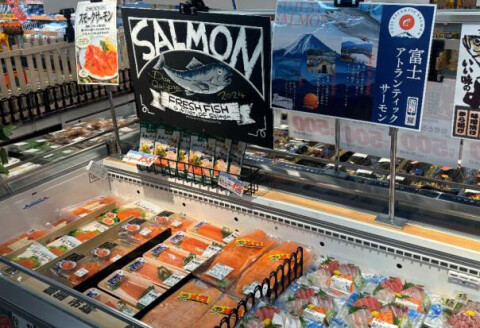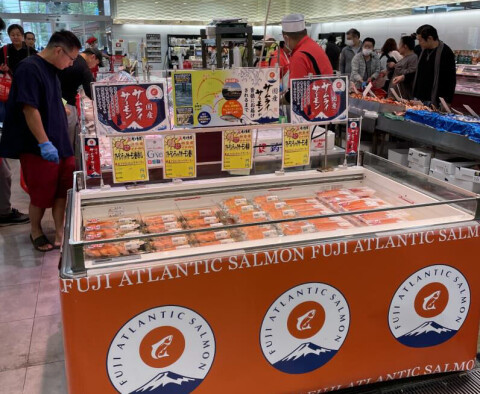

Sold salmon for NOK 130 per kilo
Proximar Seafood says it received prices for its first harvest well above the import price for Norwegian salmon in Japan
"We can now finally deliver domestically produced Atlantic salmon to the Japanese population. Achieving a premium price for our fish is another confirmation of our business model, which demonstrates the significant cost advantages of local production in Japan," Proximar Seafood chief executive Joachim Nielsen said in the company's report for the third quarter of 2024.
An average price achievement of NOK ~130/kg (Yen 1,826 / £9.26) corresponds to about a 10% premium compared to imported Norwegian salmon based on relevant reference prices, according to the company.
Turbidity challenges
The company has previously reported challenges with high turbidity in the water of its recirculating aquaculture system (RAS) facility, which has led to reduced feeding and lower growth in the grow-out building.
"The ozone plant is now installed and delivers full dosing to one module (module C), which shows very clear results and significantly reduced turbidity. The last modules will be ready to receive full dosing this month, and the company expects that turbidity will return to normal levels after this," the company said.
Only 80 tonnes this year
The lower growth rates, along with customers' timing preferences, affect the company's planned harvest volumes for 2024.
The company says it plans to harvest approximately 80 tonnes this year, while the remaining volumes that were previously planned to be harvested in 2024 will be moved to the first quarter of 2025.
However, the company maintains the expected combined harvest volume for 2024/2025 at 4,700 tonnes. Proximar still expects that full capacity for phase 1 of 5,300 tonnes will be reached in 2027.
Launched brand
Proximar's brand and logo were officially launched in Japan in October at a launch event with the company's partner Marubeni Corporation in Tokyo, with 18 media channels present.
"External attention after the launch has been very strong, which has increased awareness and created further interest," said the company. Through sales in supermarkets, emphasis is placed on the brand and product, which builds consumer awareness. The company believes that the strong enthusiasm for 'Fuji Atlantic Salmon' in Japan is partly due to it being the first and only supplier of domestic Atlantic salmon, combined with the location at the foot of Mount Fuji, said Nilsen.
